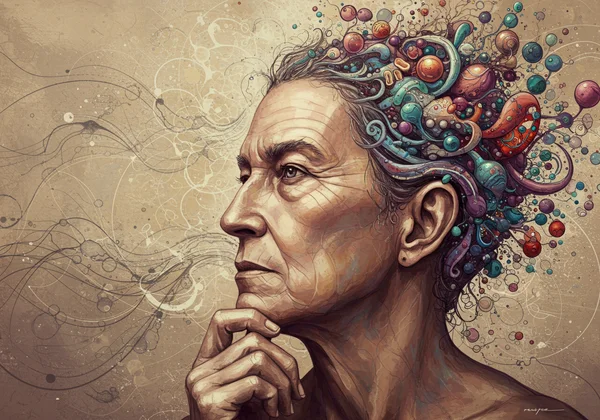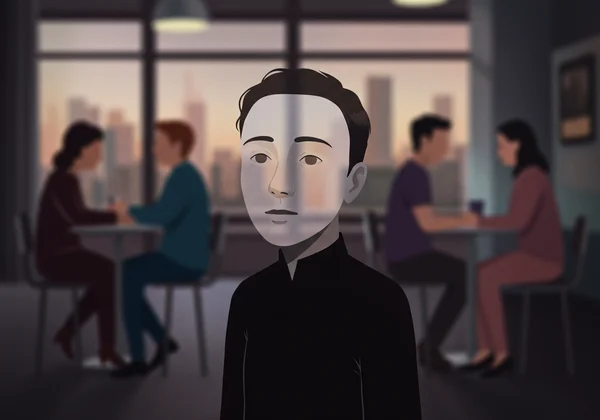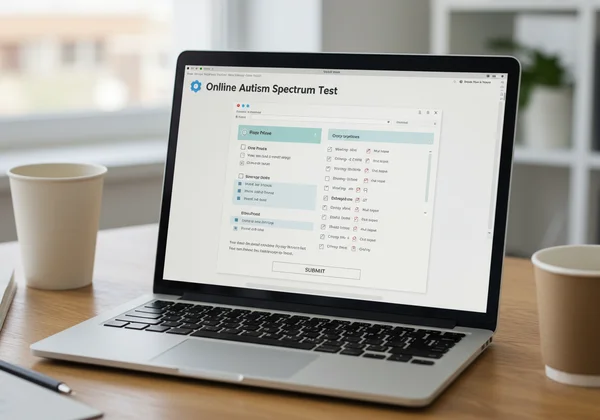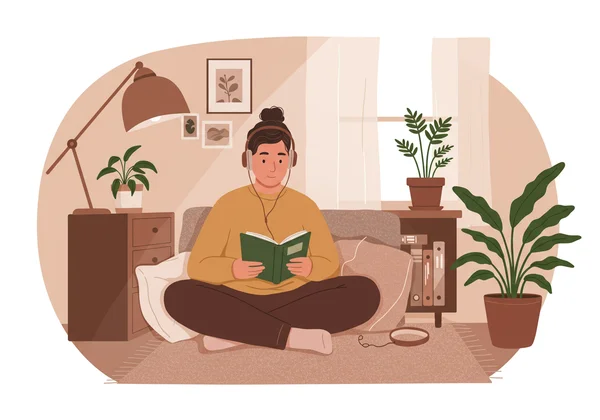Adult Autism Spectrum Test: Your Complete Guide to Diagnosis & Thriving
October 30, 2025 | By Leo Whitaker
Have you ever felt like you're operating on a different wavelength from those around you? Perhaps you've spent years navigating social situations that feel intuitive to others but require a manual for you. If you're an adult questioning long-standing social challenges, unique ways of thinking, or sensory sensitivities, you are not alone. This comprehensive guide will illuminate the journey of adult autism in adults, exploring everything from self-discovery to the diagnostic process and, most importantly, how to build a fulfilling life on your own terms. How do I know if I am autistic? For many, the first step is seeking understanding, and a great place to begin is with a confidential autism spectrum test.

Understanding Autism in Adults: Beyond Childhood Stereotypes
Autism Spectrum Disorder (ASD) is often associated with children, but it is a lifelong neurodevelopmental condition. In adults, its presentation can be far more nuanced and subtle, often masked by years of learned coping mechanisms. Moving beyond outdated stereotypes is the first step toward genuine self-understanding. For many adults, this journey begins by recognizing traits within themselves that have been present all along but were never given a name.
Common Traits & How They Present in Adulthood
While autism exists on a spectrum with a wide variety of expressions, certain core areas of difference are common. In adulthood, these traits may have been misinterpreted as personality quirks, anxiety, or even rudeness.
- Social Communication Challenges: This doesn't mean an inability to speak, but rather differences in the how of communication. You might find small talk exhausting, prefer direct and literal communication, or struggle to interpret body language and unspoken social cues.
- Repetitive Behaviors and Focused Interests: This can manifest as a deep, passionate interest in specific subjects, a love for routine and predictability, or repetitive physical movements known as "stimming" (e.g., tapping fingers, rocking), which can be a way to self-soothe or manage sensory input.
- Sensory Sensitivities: You may experience heightened or dulled senses. Bright lights might feel overwhelming, certain textures unbearable, or background noise in a restaurant impossible to filter out. Conversely, you might seek out intense sensory experiences.
Autistic Masking: Hiding Traits & Its Impact
Many autistic adults, particularly women and those assigned female at birth, become experts at autistic masking or camouflaging. This is the conscious or unconscious effort to hide autistic traits to fit in with neurotypical peers. It can involve forcing eye contact, mimicking social behaviors, or suppressing stims. While a useful survival strategy, long-term masking is mentally and emotionally exhausting and can lead to burnout, anxiety, and a diminished sense of self. Recognizing that you've been masking can be a powerful "aha" moment in your journey of self-discovery.

Co-occurring Conditions: AuDHD and More
It's very common for autism to co-occur with other conditions. One of the most frequently discussed is the combination of Autism and ADHD, often referred to as AuDHD. Individuals with AuDHD may experience a unique internal conflict between the ADHD desire for novelty and the autistic need for routine. Other common co-occurring conditions include anxiety disorders, depression, and obsessive-compulsive disorder (OCD). Understanding these overlaps is crucial for receiving the right kind of support and developing effective coping strategies.
The Path to an Adult Autism Diagnosis
Realizing you might be autistic is one thing; deciding what to do with that information is another. The path to a formal adult autism diagnosis is a personal choice, but it can provide validation, clarity, and access to necessary support and accommodations. It's a journey of affirmation that can reframe your entire life experience in a more positive, self-compassionate light.
Why Seek a Diagnosis as an Adult?
For many, receiving a late diagnosis is life-changing. It provides an explanation for a lifetime of feeling "different." This validation can alleviate feelings of self-blame and inadequacy, fostering greater self-acceptance. A formal diagnosis can also unlock access to workplace accommodations, therapeutic support tailored to autistic individuals, and a community of peers who share similar experiences. It's not about applying a label, but about gaining a framework for understanding yourself better.
Online Autism Screening: Your First Step
Before diving into a potentially lengthy and expensive formal assessment, a great first step is to take a preliminary screening. A confidential and reliable online autism test can help you organize your thoughts and see how your experiences align with common autistic traits. These screenings, often based on scientifically validated questionnaires like the Autism-Spectrum Quotient (AQ), provide valuable initial insights. They can give you the confidence and information needed to decide whether to pursue a formal evaluation.

Navigating the Formal Assessment Process
If you decide to seek a formal diagnosis, the process typically involves meeting with a clinical psychologist or psychiatrist specializing in adult neurodevelopmental conditions. The assessment may include:
- Detailed Interviews: Discussing your developmental history, from childhood to the present.
- Standardized Questionnaires: Filling out forms about your traits and challenges.
- Observational Assessments: Engaging in activities or conversations designed to observe your social communication and interaction styles.
It's helpful to prepare by writing down examples from your life that illustrate why you suspect you are autistic. This can make the process smoother and ensure your experiences are fully communicated.
Living and Thriving with Adult Autism
A diagnosis, whether formal or through self-realization, is not an endpoint. It's the beginning of a new chapter: one focused on living with autism as an adult in a way that honors your needs and celebrates your strengths. This involves developing strategies to navigate challenges and creating an environment where you can thrive.

Strategies for Self-Care & Well-being
Understanding your autistic brain is key to effective self-care. This means recognizing your sensory limits and avoiding situations that lead to overload or planning recovery time after them. Establishing predictable routines can reduce anxiety and free up mental energy. Most importantly, allow yourself to unmask in safe spaces and embrace stimming as a valid and helpful form of self-regulation.
Building Relationships & Social Connections
Navigating relationships can be challenging, but it is entirely possible to build deep and meaningful connections. Honesty is a powerful tool. Communicating your needs and communication style to trusted friends, partners, and family can foster greater understanding. You may also find immense value in connecting with the autistic community online or in person. Finding your "tribe" can be incredibly affirming and reduce feelings of isolation.
Succeeding in Work & Education
Many autistic individuals excel in professional and academic settings due to their ability to hyperfocus, their attention to detail, and their unique problem-solving skills. The key is to find a role or environment that aligns with your strengths and minimizes your challenges. Don't be afraid to ask for accommodations, such as written instructions instead of verbal ones, a quieter workspace, or flexible hours. Your unique perspective is a valuable asset.
Embracing Your Autistic Identity: Resources & Next Steps
The journey to understanding your potential place on the autism spectrum as an adult is a profound act of self-discovery and self-compassion. It's about reframing a lifetime of experiences and embracing the unique way your brain works. Whether you choose to seek a formal diagnosis or not, this knowledge empowers you to build a life that is authentic, fulfilling, and supportive of your needs.
If you are just beginning this journey, remember that you are not alone. A wealth of resources and a vibrant community are waiting. A simple, confidential first step can provide incredible clarity. To gain personal insight into your traits, take a free test on our website today.
Frequently Asked Questions About Adult Autism
What are the common signs of autism in adults?
Common signs often fall into three categories: social communication differences (e.g., difficulty with small talk, taking things literally), patterned behaviors (e.g., strong routines, deep interests in specific topics), and sensory sensitivities (e.g., being over- or under-sensitive to light, sound, or touch). Many adults also experience executive functioning challenges and may have a history of anxiety or depression.
Is an online autism test accurate for adults?
An online autism test is a screening tool, not a diagnostic one. It cannot give you a formal diagnosis. However, a high-quality, science-based screening can be a very accurate and valuable first step. It helps you assess your traits against established criteria and can provide the confidence and evidence to seek a formal evaluation from a qualified professional.
Can you be mildly autistic or 'high-functioning'?
The community is moving away from functioning labels like "high-functioning" or "mildly autistic" because they can be misleading. Autism is a spectrum of traits, and an individual's support needs can vary day-to-day and situationally. Someone who doesn't need much support in their work life may need significant support in their social or home life. The focus is now on understanding an individual's specific strengths and support needs.
What should I do after receiving an online autism screening result?
After receiving your results from an autism screening tool, take some time to reflect. If the results suggest you may have autistic traits, you might consider speaking with a therapist or a clinician who specializes in adult autism. You can also connect with the autistic community online to learn from the lived experiences of others. The screening is a tool for insight, and you decide the next step that feels right for you.
Am I autistic or just socially awkward?
While many people experience social awkwardness, for autistic individuals, it's often more pervasive and stems from fundamental differences in neurological processing. It's not just about feeling nervous; it's about difficulty in intuitively understanding and navigating complex, unspoken social rules. If your social challenges are lifelong, consistent across different situations, and accompanied by other traits like sensory sensitivities or intense interests, it could be more than just awkwardness.